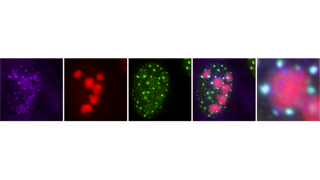Dissertation: Queer narration in contemporary literature can resist the gendering of narrative voice

What kind of a narrating “I” can remain a mystery throughout a fictional narrative – not a woman, not a man, yet not something specifically other? How can texts create such possibilities and what is required from readers encountering them? When and why does the unknowing of gender especially matter?
Säntti argues that persistent, unresolved ambiguity can experiment with gendered conventions while simultaneously inviting readers to scrutinize the validity of their own interpretations about gender. The texts discussed in the thesis react to the requirements of recognizability and visibility in an era where cultural conceptions about sex and gender are particularly identitarian and at the same time contested and limited by institutional forces often disrespectful of individual self-determination.
Säntti’s dissertation analyzes texts by four authors. These include Leda, a novel by Anu Kaaja; Kaikki tilat ovat täynnä aaveita, a mixed genre work by Taneli Viljanen; two short stories by Scottish author Ali Smith; and an experimental long prose poem by US author kari edwards, succubus in my pocket. “I have knowingly selected texts that have not been widely researched, and I have done so to broaden the discussion about the possibilities of queer character narration”, Säntti states. The dissertation employs narratological methods mostly from the fields of queer narratology, feminist narratology and unnatural narratology.
The dissertation suggests that narrative queerness can be related to ambiguity and antimimetic forms. The reader cannot always determine what the character-narrator is like. This is particularly fascinating in a time when categories and cultural representations of different gender identities have multiplied. Experimental texts can also play with the concept of “voice”, creating narrators that both are and are not human-like as well as narrating instances that remain self-contradictory or unnatural.
The language of the dissertation defence is Finnish.
The dissertation event can be followed online:
https://r.jyu.fi/dissertation-santti-151125
Background: FM Joonas Säntti has worked as a literary critic and part-time teacher of several university courses on literature. They actively contribute to cultural journals and currently chair SQS, The Society of Queer Studies in Finland.




